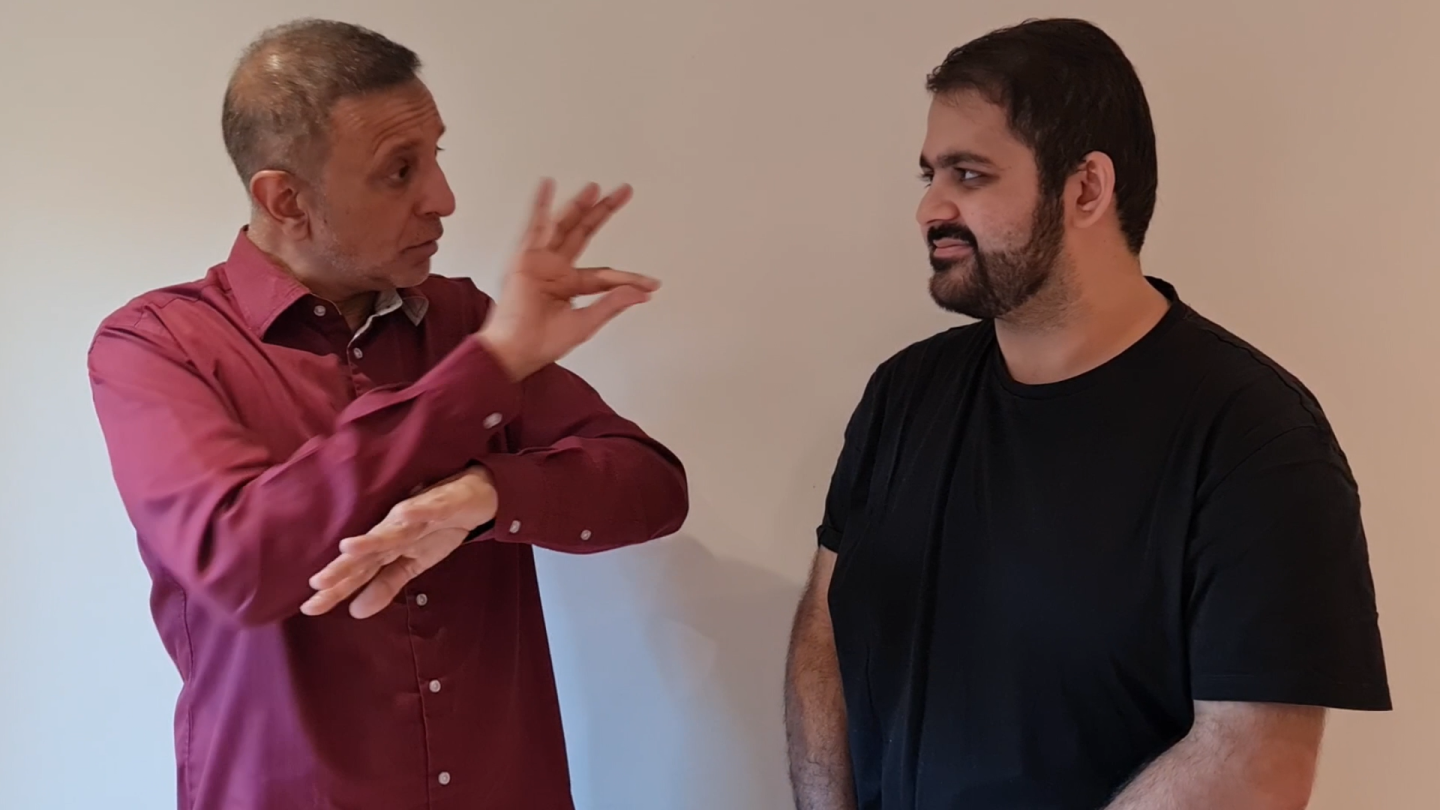
Deaf Muslims in the UK: Khalid Ashraf on intersectional discrimination in Britain
Both Deaf people and Muslims experience exclusion and discrimination in British society. Both structurally and in daily life, Deaf Muslims face both ableism and Islamophobia. For UK #DisabilityHistoryMonth, co-founder of Deaf Muslim UK Khalid Ashraf, introduces the intersectional discrimination Deaf Muslims face in Britain and the fight against it.
Full transcript
Interviewer: Hi, can you briefly introduce yourself?
Khalid Ashraf: Hi. I am Khalid Ashraf and I am from Leeds in the north of England. I am a co-founder of Deaf Muslim UK, I am still involved voluntarily with them and I am very passionate about it. Additionally, I have worked in various professional careers including architecture, structural engineering, access consultancy and onscreen presenting/interpreting at ITV. I have also graduated with an MA in Islamic Studies.
Interviewer: Can you talk about your own experience as a Deaf Muslim and the experience of Deaf Muslims in the U.K.?
Khalid Ashraf: My own experience as a Deaf Muslim and the experience of Deaf Muslims in the UK are similar. Firstly, Deaf people, as an ethnolinguistic group, experience exclusion from and oppression by the dominant hearing society, and Muslims on the other hand, as a religious group, have a similar experience where they have been unfairly treated and oppressed in British society. Deaf Muslims, as an ethnolinguistic religious group, tend to suffer more from these negative experiences in the UK due to the intersectionality of their identities. They are experiencing both discrimination and oppression in their everyday life within both circles, i.e. firstly, their families and the wider community and secondly, the Deaf community in the UK. With regards to the former, Deaf Muslims are marginalised within their families and the wider community based on both their deafness and their use of sign language, hindering familial and societal interactions. Furthermore, Deaf Muslims face being ostracised from the Deaf community in the UK due to racism issues and cultural differences. Therefore, Deaf Muslims are more disadvantaged within British society due to the presence of multiple forms of discrimination.
Interviewer: You were one of two of the first Deaf Muslims to complete a Master’s in Islamic Studies (Congratulations). Can you tell me about your research?
Khalid Ashraf: Thank you. The outcome of my MA research entitled ‘How does intersectionality affect the national identity of British Deaf Muslims?’ in 2018 is somewhat unsurprising in that many Deaf Muslims do not seem to have an issue with being identified as Muslim despite Islamophobic incidents and the marginalization from the Western society due to cultural differences. Out of 92, respondents from my survey indicated which identity Deaf Muslims identify themselves as. Most of them are split into three identities, i.e. Deaf, Muslim, and dual; Deaf Muslim.
Interviewer: How are Deaf Muslims represented in Deaf culture and generally in the UK?
Khalid Ashraf: Prior to the formation of Deaf Muslim UK, many Deaf Muslims mixed with Deaf people in the UK and have had no recognised identity as Muslims due to a lack of Muslim awareness. They exhaustingly tried hard to fit in with the British Deaf community, although there was some marginalisation due to racism issues and cultural differences. The starting point of Deaf Muslim UK has transformed British society and being involved with BBC See Hear several times, has influenced the Deaf community. Furthermore, they were involved in interfaith relations with other organisations, such as Catholic Deaf Association and Jewish Deaf Association. Secondly, there are some individual influential Deaf Muslims who have a good rapport with the British Deaf community through education, employment, and leisure.
Interviewer: Is there anything you would like to see change in the UK?
Khalid Ashraf: I would like to see a change in the UK to raise more awareness and involvement to show mutual respect between all faiths, genders, races and any other differences or divisions.
—
Photo: Still from the interview.